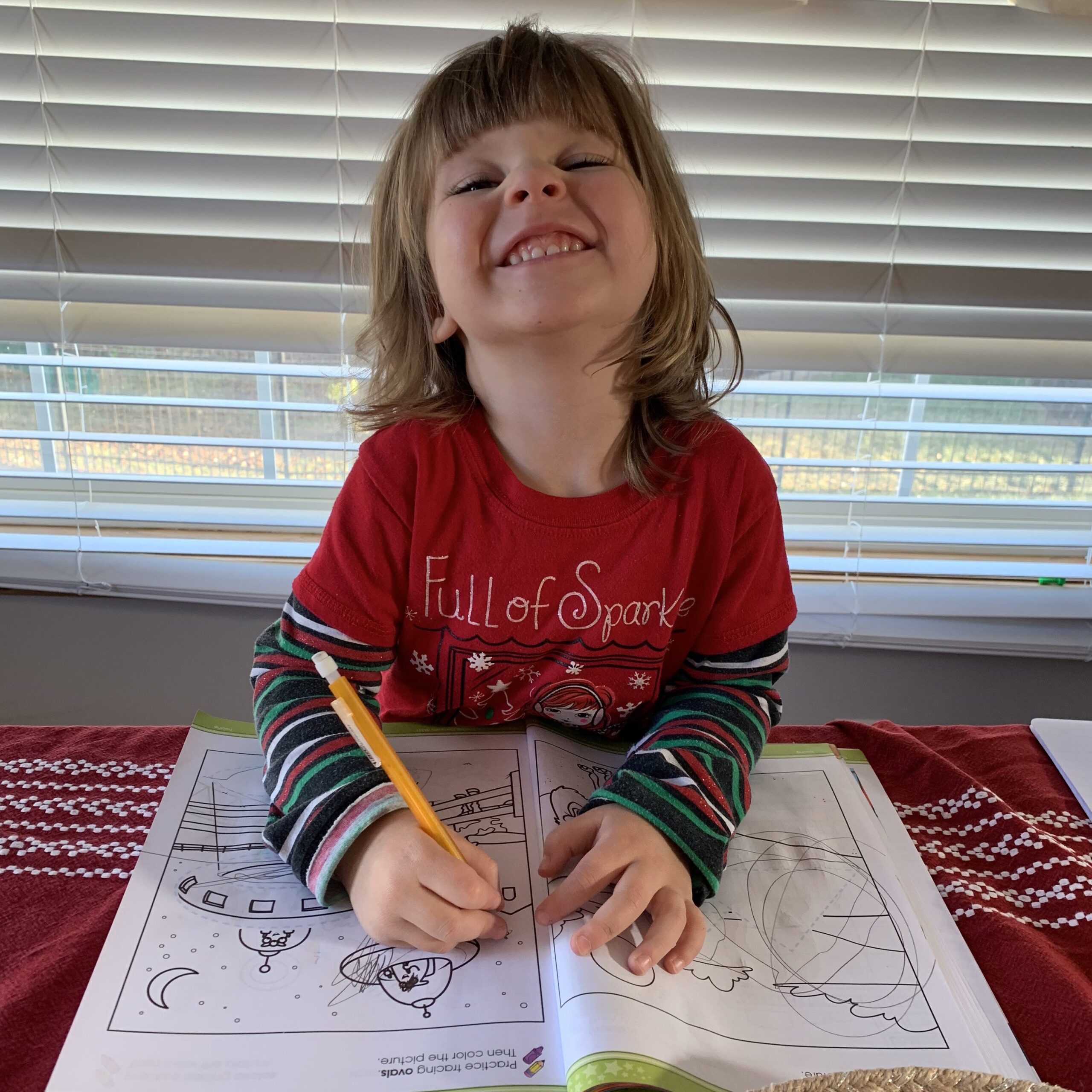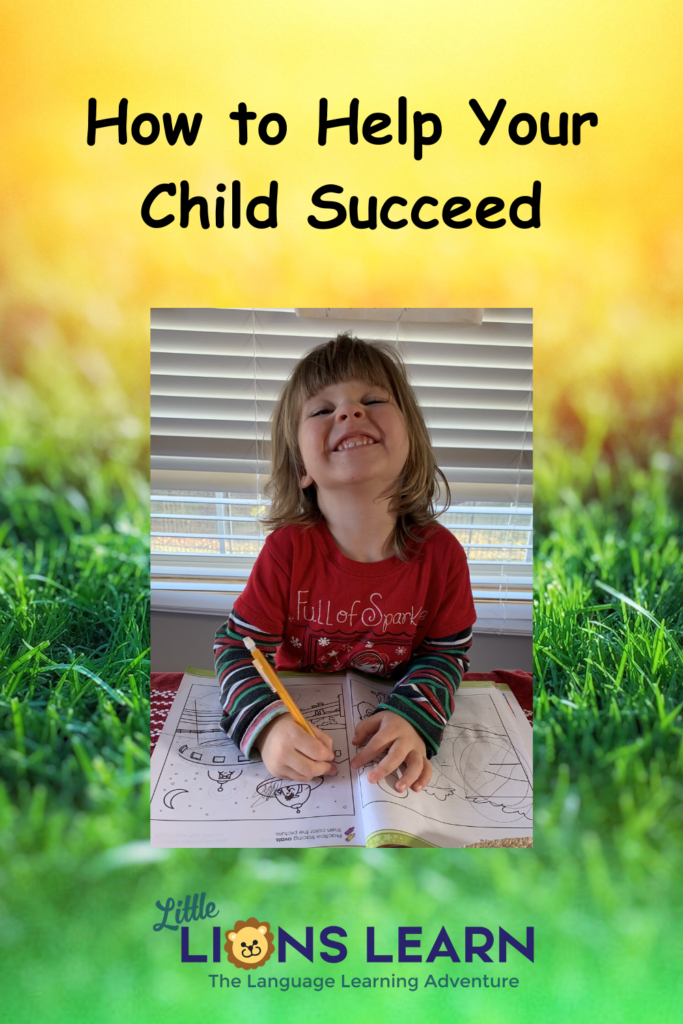
As parents, all of us want our children to be successful. We try our best to make decisions for their well-being that will help them to grow physically, mentally, and emotionally. We sign them up for activities that we hope will be positive experiences for them. Activities that will ultimately result in a more well-rounded individual. For many parents, one of the ultimate goals is to do whatever they can to help their child succeed academically. Here are some tips to help your child succeed academically:
Understand how your child’s brain is developing
Young children’s brains develop at an incredible rate. According to the experts, this development happens in five primary stages.
Stage 1: 0-10 months: A child’s brain develops essential structures for survival and growth
The cerebral cortex begins to form during this time, which is responsible for complex thinking, planning, and sensory perception.
Stage 2: 10 months-2 years: The brain continues to grow and create new neural synapses.
The prefrontal cortex begins to develop. This portion of the brain is responsible for decision-making, self-control, and social behavior.
Stage 3: 2-6 years: Brain growth slows down and refines existing neural connections.
The prefrontal cortex continues to develop. The emphasis at this time is on language and social skills. Children are also developing balance, fine motor skills, and coordination during this time.
According to a study published in 2021: “During childhood and at pre-school age, movement is an integral part of children’s lives. In the first six years of life, children discover themselves and the world through movement and capture their surroundings through their body and their sensations. Thus, especially in that period of human life, the study of a child’s motor performance can significantly contribute to the full understanding of his/her entire personality. Such a study is considered essential to the better preparation of children in the field of learning and for preventing the development of motor disorders associated with a sedentary life and lack of motor skill training during the period of growth and development.”
Stage 4: 6-8 years: A child’s brain undergoes “pruning” to remove unused neural connections.
Skills that have gone unused till this point are done away with at this age. This applies to all skills that the child’s brain has been trying to learn to this point- skills related to social interactions, communication, and movement. The brain removes neurons that do not develop during the appropriate phase. Developing them at a later time may also require additional intervention, such as occupational therapy.
Stage 5: 8-25 years: The prefrontal cortex continues to mature and stabilize.
A child’s executive functions such as planning, organizing, and abstract thinking develop during this time.
Allow your child lots of opportunities to develop skills their brains are working to develop in order to succeed academically
Focusing on the skills that are appropriate for your child’s stage of development is an example of “work smarter, not harder.” When you help them achieve their goals, you become an ally and trust is formed. In addition, the learning process is much easier because their brains are already trying to develop in that way. Therefore, they are naturally motivated to that end.
In contrast, if children are pushed to learn things they aren’t ready for, the process becomes very frustrating for everyone. In fact, there is evidence that trying to force a child to do too much before they are ready can have negative effects on their academic performance. Children who start school too young are more likely to be diagnosed with ADHD or other learning “disabilities,” compared to their older peers.
Instead of forcing schoolwork they aren’t ready for, foam climbing blocks or pikler triangles are great for toddler and preschool level development. For developing fine motor skills, this brand of toys is a favorite. If you want your child to succeed academically, give them time to play and explore on their own!
Read lots of books!
Reading books together is very beneficial to young children for a variety of reasons. First, it’s a great way to help develop language skills at an early age. This is because it exposes children to words and ideas they wouldn’t normally hear and familiarizes them with proper grammar.
According to the Child Mind Institute, reading to children at an early age helps to lay the neurological groundwork for effective literacy and language use. In addition, children who are read to daily are exposed to an estimated 290,000 more words than children who are not read to regularly. Exposing children to that many extra words while the language centers of their brains are developing is a simple and highly effective way to set them up for future success.
In addition to teaching language skills, reading books can also help teach empathy, general knowledge of the world, morals and values, and develop strong relationships between parent and child. Books are a great way to lay the groundwork for many things in a fun and gentle way during early childhood. It also sets children up to get ahead academically as they grow up.
Go on adventures!
Children, and especially young children, learn the most from experiences. They are constantly looking for ways to interact with the world around them. And, while it can be frustrating to have little hands touching, it’s important to recognize this is how they learn. In addition, the better a child’s understanding of their environment, the more confident they will be. So, taking time to allow them to explore and communicate independently will help them get ahead academically. Moreover, it will set them up for success in their careers when they are older.
Let them help
For some parents, this is one of the hardest learning tools to implement. But, it is also one of the most important. Children as young as two years old are able to help out with small tasks around the house. And, most are eager to participate in the normal routines around the house.
According to Psychology Today’s article on the subject, there are numerous benefits to taking the time to allow little hands to help with household chores. Some of these include competence, a sense of responsibility, self-esteem, confidence, happiness, empathy, career success, self-regulation, family connection, kindness, gratitude, and mindfulness. Though it takes time and patience in the short term to allow young children to help, in the long term it pays dividends in the form of competent and willing help, happiness, and better career success.
Play!
Play is ultimately the best way for young children to get ahead academically. Allowing children to learn things in the proper order gives them the framework they need to excel in all areas of their lives. If you want to include some “school” things into their play time, keep it simple and lighthearted. They will pick it up better that way. Counting flower petals on a plant or buttons on a shirt is a great way to start introducing numbers. Drawing letters with chalk or a paint brush and water is a fun activity that children enjoy. If children decide that learning is fun from the beginning, it will make the education process much easier for everyone.
Conclusion:
Many parents think, to help their child succeed academically, they need to start formal education as soon as possible. By trying to force the process, they can actually make learning harder in the long run. Children need time to play independently and learn through exploration. If they do this while their brains are trying to grow in that way, it’ll make the entire education process much easier for everyone.

